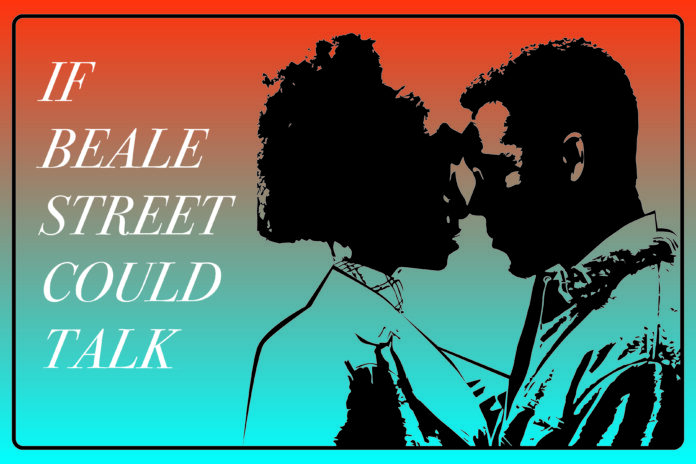Oscar-nominated drama showcases resilience in face of prejudice
Imagine the course of someone’s life changing in an instant as they’re handcuffed, patted down and shoved into the back of a police car. The moment someone realizes everything’s going to be different, and for the worse, is the most frightening feeling — especially if they’ve been wrongly accused. For many African American men in the 1970s, this was their reality: separated from their family, friends and coworkers behind cold steel bars.
“If Beale Street Could Talk” was nominated for three Oscars this year. It is a breathtaking captivation of resilience and perseverance. The story centers around a young couple, Tish and Fonny, played by KiKi Layne and Stephan James. The two grew up together, and at the start of the film, fell in love and were expecting a child. Fonny hears the news of his child-to-be through a prison phone because he was wrongfully accused of raping a woman he never met. In an attempt to find justice for Fonny, Tish and her family seek the testimony of their key witness, Victoria, played by Emily Rios.
The film speaks to the broken relationship between the justice system in America and the African American community and resonates with the modern audience. Fear can best describe the current political climate surrounding members of oppressed minority groups. The fear of whom those entrusted with safety actually protect and serve.
The film does not pin Victoria as a villain. Too often in society, the weight of blame is placed on the victim of a rape, either by shaming them for not speaking up, or for doing so and threatening their abuser’s future. The film stays on track with the bigger picture.
Regina King, who plays Tish’s mother Sharon, won her first Academy Award for Best Actress in a Supporting Role on Sunday, Feb. 24 for her role. Her performance as a mother desperately trying to help her child in the face of tragedy will send chills up anyone’s spine. The scene in the beginning of the film where Sharon defends her daughter from her sister-in-law is no doubt what caught the eye of The Academy.
“To be standing here representing one of the greatest artists of our time James Baldwin is a little surreal,” said King in her emotional acceptance speech.
The layout of the storyline was configured with flash forwards and flashbacks, which increased the level of suspense. The keen editing of the film created an up-close and personal feeling because it focused on the nuanced expressions and movements of the characters. The camera came almost nose-to-nose with the actors, and it felt like the audience was with them.
The score was beautifully done by Nicholas Britell, and the music put the emotions of the characters into chords. The music closely complemented the visuals, which almost made the audience forget the music was there.
“If Beale Street Could Talk” is an amazing cinematic achievement that speaks to the ever-present struggles of African Americans in this country.
The film is currently showing at The Varsity theatre in Downtown Davis.
Written by: Josh Madrid – arts@theaggie.org




